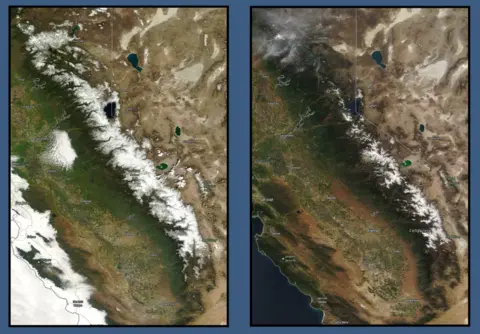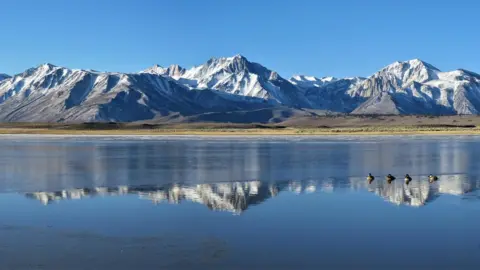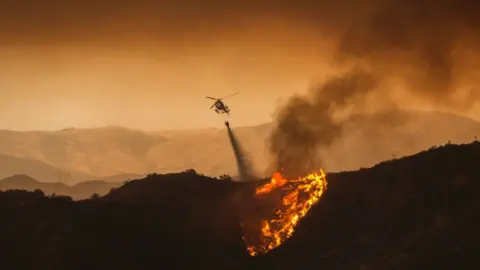Climate change is 'shrinking winter'
 NASA
NASASnowy mountain winters are being "squeezed" by climate change, according to scientists in California.
Researchers who studied the winter snowfall in the mountains there revealed that rising temperatures are reducing the period during which snow is on the ground in the mountains - snow that millions rely on for their fresh water.
They presented their findings at the American Geophysical Union meeting - the world's largest gathering of Earth and space scientists.
"Our winters are getting sick and we know why," said Prof Amato Evan, from the Scripps Institution of Oceanography in San Diego, who carried out the investigation. "It's climate change; it's rising temperatures."

Other stories from the AGU meeting you might like:

Prof Evan studied the annual cycle of snow and melt in the western US from the early 1980s to 2018.
 Amato Evan/Scripps
Amato Evan/ScrippsHe found that the length of time snow is on the ground there is continually "being squeezed" into a shorter period. And the early arrival of summer, he explained, is a driving force behind sometimes devastating wildfires.
"Particularly in a place like California where we get all of our precipitation during the winter time, that means that our summers are growing longer," he told BBC News. "And really what that means is our fire seasons are growing longer.
"We've got less snow, we've got a longer fire season, we've got infestations [of pests that thrive in warmer temperatures] - these ecological issues; it's a kind of perfect storm of really bad outcomes, which then result in - in some cases - these massively dramatic fires."
 AFP
AFPDonal O'Leary from the University of Maryland, who presented his research on what he called the "significant relationship" between snow and wildfire, agreed.
Earlier snowmelt, he said, "is leading to more wildfires, particularly in places like the Sierra Nevada in California".
Mountain snow is also what millions of people rely on for fresh water supplies - in California, particularly, the reservoirs are refilled by annual snowmelt.
Other scientists who have looked at global climate models have seen similar results across much of the Northern Hemisphere. And researchers say this signal from the snowpack is clear evidence that the impacts of climate change are now playing out in the mountains.
